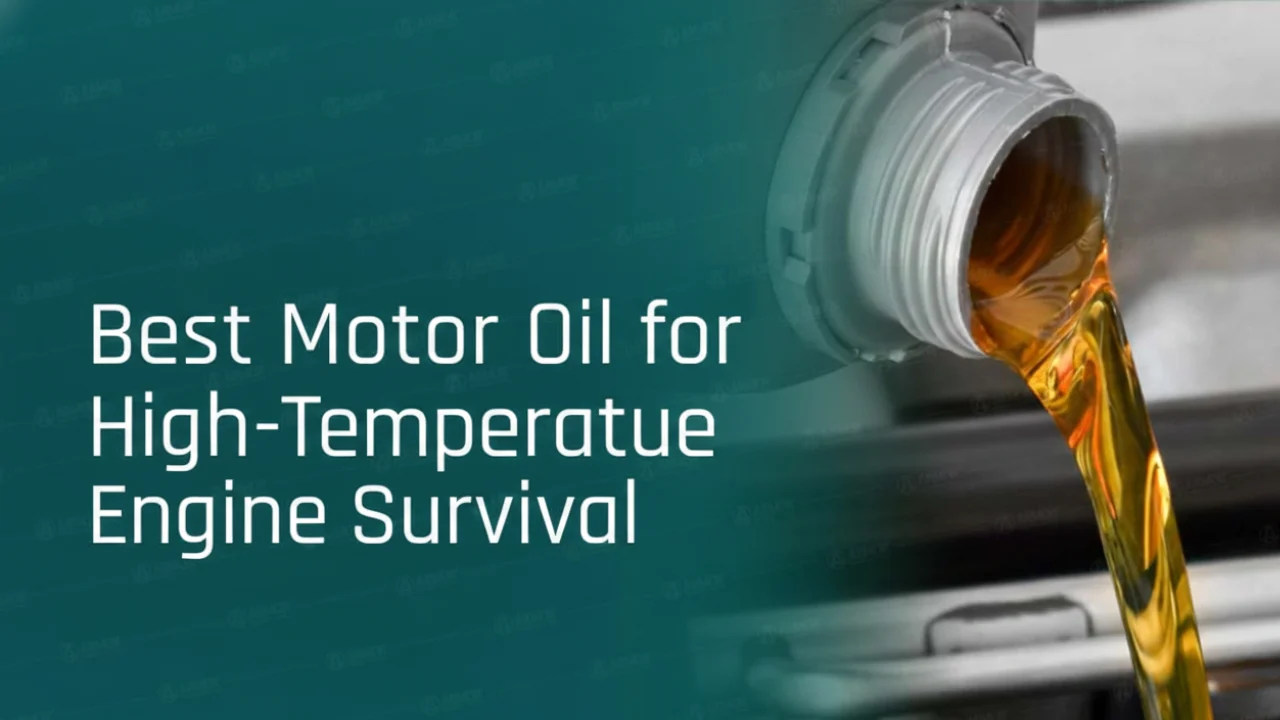- Armor Blog
- Vehicle
- High Mileage Synthetic Oil Secret to a Long-Lasting Engine?

What is a High Mileage Car?
The term “high mileage” is relative and depends on various factors like the type of the vehicle, maintenance history, and driving conditions. Generally, a car with over 100,000 miles is considered as high mileage. However, with advanced technologies in car manufacturing, some well-maintained vehicles can reach 200,000 or even 300,000 miles before requiring significant repairs.
Why Use High Mileage Synthetic Oil?
Over time, as engines age, their needs oil change. Regular engine oil may not be enough to protect engine components wear, leading to increased friction and wear, oil leaks due to worn seals and sludge buildups.
What is the difference between high mileage car and new car?
The difference between high mileage cars and new cars lies in the number of miles driven and their effect on them. A high mileage car has been used more extensively, which could lead to increased wear and tear on components, potential reliability issues. A new car, on the other hand, has fewer miles and may have experienced less wear and tear, making it potentially more reliable and valuable.
It is hard to determine if your car is high mileage, but it is important to decide if it is because this decision means that it is time to switch to high-mileage lubricants.
What is high mileage synthetic oil?
High mileage synthetic oil is specifically formulated for vehicles that have accumulated significant miles on the odometer, typically exceeding 100,000 miles. These oils address the changing needs of an engine with wear and tear. They contain special additives that help combat sludge buildup, reduce friction, and improve seal conditioning to prevent leaks. Ultimately, high mileage synthetic oil aims to extend engine life, improve performance, and keep your car running smoothly for miles to come.
What’s the difference between high-mileage Oil and Regular oils
Although both High-mileage oils and regular oils serve the same primary function of lubricating and protecting an engine’s internal components, they are not exactly the same.
High-mileage oils are specifically designed for vehicles with extensive wear, therefore, they have different composition. In other words, high-mileage oils have other additives to provide the extra protection needed.
Here is some of the differences between them:
Additives
High-mileage oils contain a unique blend of additives to help prolong the life of older engines. These additives can include anti-wear agents, detergents, dispersants, and friction modifiers. High-mileage oils may also have seal conditioners that help rejuvenate and maintain the flexibility of engine seals.
Viscosity
The viscosity of High-mileage is typically higher to improve oil film strength and reduce oil consumption in older engines with worn parts. Regular oils are available in various viscosities, but they may not offer the same level of protection for high-mileage engines.
Compatibility
High-mileage oils are specifically designed for vehicles with higher mileage, while regular oils cater to engines with lower mileage or newer vehicles. Using a 5w30 high-mileage oil in a newer vehicle may not cause harm, but it may not be necessary, and the specialized additives may not provide any additional benefit. Conversely, using regular 5w30 motor oil in a high-mileage vehicle may not provide the same level of protection and could lead to increased wear and tear.
Price
High-mileage oils are often slightly more expensive than regular oils due to the specialized additives and formulations. However, the additional cost may be worth it to help prolong the life of an older engine and prevent oil leaks.
How can your car benefit from using synthetic high mileage oils?
Synthetic high mileage oils are specially formulated to cope with the effects of aging on your engine. Using them on your car is similar to adding the vitamins an elderly vehicle needs to remain healthy for longer periods of time.
But how can this synthetic blend oil benefits your motor? Here are some examples:
Reduce Wear and Tear
with anti-wear additives, they can help reduce friction between engine components better than regular oils providing extra protection that older engines definitely need.
Improve Seal Condition
Over time, seals can shrink and lose their flexibility leading to more oil leaks from the engine. Buying a high mileage 5w20 motor oil gets you engine oil with seal conditioners that help rejuvenate and maintain the flexibility of these seals, reducing the risk of leaks and maintaining proper lubrication.
Decrease Sludge and Deposit Buildup
Sludge and deposits can build up in an engine, especially when they are old. Build-ups can leave a mark on the performance causing damage. To address the issue, high mileage synthetic oil contains detergents and dispersants that help break down and prevent sludge and deposit buildup.
Reduced Oil Consumption
Older engines with worn parts usually consume oil more quickly than modern engines. High-mileage oil is typically more viscous, which can help reduce oil consumption by creating a stronger oil film between moving parts and sealing small gaps in worn components.
Enhance Protection Under High-Stress Conditions
Older engines may be more susceptible to damage under such conditions, such as high temperatures or heavy loads. Being designed to maintain its protective properties even under these challenging conditions, ensure continued engine protection.
How Often Should Oil in High Mileage Engines Be Changed?
While some people suggest more frequent oil changes for older engines, as they may be less capable of withstanding the effects of worn oil, many argues that oil change frequency is less critical because the engine’s health will decline regardless.
Who is right here? Unfortunately, No body knows for sure. However, and to help all of you protect your cars, here are some of the common advised practices for high mileage synthetic blend engine oil changes:
For a car with approximately 150,000 to 200,000 miles on it, it’s advisable to change the oil every 5,000 to 7,500 miles, or roughly every five to eight months.
This guideline can be adjusted based on your driving habits and distances. Additionally, using high-mileage oil can prolong the time between oil changes, especially when paired with a quality oil filter.
Choosing the right oil filter is crucial for optimal engine performance. Learn about oil filters and why you need to replcae oil filters every oil change?
By investing in high mileage synthetic oil, you can extend engine life, improve performance, and ensure your car keeps running smoothly for miles to come. Explore the range of engine oil options and choose the one that best suits your vehicle’s needs.




 Spear Lubricants
Spear Lubricants Armada lubricant
Armada lubricant Ace lubricants
Ace lubricants Perfect lubricants
Perfect lubricants Enzo lubricants
Enzo lubricants Lawrence lubricants
Lawrence lubricants